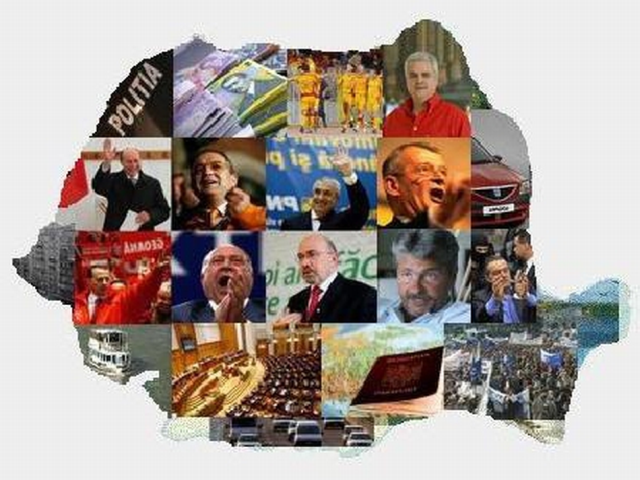The Week in Review, February 26 – March 4
A review of the week's main stories.

Newsroom, 04.03.2017, 13:51
Reactions to the scenario concerning a two-speed Europe
On Wednesday, the European Commission President Jean-Claude Juncker presented 5 potential scenarios regarding the future of the EU after Brexit. The so-called ‘white paper’ marks the beginning of a process through which the 27 EU members will decide together the future of the Union. The paper analyses the way in which Europe will change in the next ten years, from the impact of new technologies on society and jobs, to doubts concerning globalization, security threats and the rise of populism. The five scenarios range from the EU becoming nothing but the single market to the possibility of a federalized Europe. One of the scenarios is that of a multi-speed Europe, with some of the member countries developing faster, without forcing the community bloc to follow the same pace. The option has already raised concern in the east, including in Romania. Bucharest stands against a multi-speed Europe, as Romanian authorities believe that such a differentiated integration might widen the economic and social gaps between the member countries. In Brussels, the Romanian MEP Victor Bostinaru called for a political debate at national level on the concept of a double-speed Europe. The issue was also tackled by Romania’s President Klaus Iohannis during the meeting he had with the Prime Minister of Malta Joseph Muscat, whose country is holding the six-month rotating presidency of the Union. The head of state stood firmly against the idea of a multi-speed Europe, saying that such a reconfiguration formula might lead to the dismantling of the Union. Both the president and Prime Minister Grindeanu stressed the need for a unitary stand on maintaining the single market and the rights of the European citizens in Great Britain, after the Brexit. The two prime-ministers also discussed the preparation process for Romania’s taking over the rotating presidency of the EU in the first half of 2019.
Attracting more European funding — a priority for the Grindeanu Government
The main priority of the Romanian government is to attract European funds worth 5.2 billion Euros by the end of this year, according to the Minister of Regional Development Sevil Shhaideh, who is also the Deputy Prime Minister of Romania. Romania lost 3.5 billion worth of EU funds that it could have accessed between 2007-2013. From the 30 billion Euro budget earmarked for the 2014-2020 financial framework, Romania has only managed to spend one percent. At European level, the absorption rate stands at some 3% for the 2014-2020 period. In Warsaw, where he attended the meeting of the ministers in charge with cohesion policy of the Visegrad countries, plus Bulgaria, Croatia, Romania and Slovenia, the Romanian Minister for European Funds Rovana Plumb said that the cohesion policy after 2020 should remain the main investment pillar at EU level. Plumb also said that a strong and effective cohesion policy would generate a smart and sustainable growth, favouring inclusion in all Europe’s regions.
Investigation into the double standards used for foodstuffs sold in eastern and western Europe
The existence of double standards regarding the quality of food products sold in eastern and western Europe will be checked by the Romanian authorities as well, the Romanian Agriculture Minister Petre Daea has announced. The decision was made following accusations by several east European governments, according to which some food producers include in the products they sell in central and eastern Europe ingredients that are cheaper than those used in the West, although prices are the same. European legislation does not ban this practice, but the EU requires that the ingredients used must be clearly indicated on packaging. Producers say that the differences in composition are just a matter of local taste. The leaders of the countries members of the Visegrad Group, namely the Czech Republic, Hungary, Poland and Slovakia, want the EU to take firm measures against the food producers who include ingredients of poorer quality in the products sold on the markets of the poorer member countries.
The Romanian Foreign Minister’s visit to Budapest
Early this week, the Romanian Foreign Minister Teodor Melescanu paid a visit to Budapest, where he met with his Hungarian counterpart Peter Szijjarto and with the Prime Minister Viktor Orban. During talks, the officials stressed the idea that the relation between Romania and Hungary must become a model, including for other countries in the region. The Romanian Foreign Minister said that the parties were considering a joint session of the two governments, preceded by a session of the Joint Romanian — Hungarian Collaboration Commission. The Hungarian Minister said that dialogue was needed in the relation between Bucharest and Budapest, and voiced hope that sensitive issues, such as the minorities’ situation, would be settled. Melescanu’s agenda also included a meeting with representatives of the Romanian community in Hungary and, as a first for a Romanian minister, a speech given at the annual meting of Hungarian diplomacy.



























